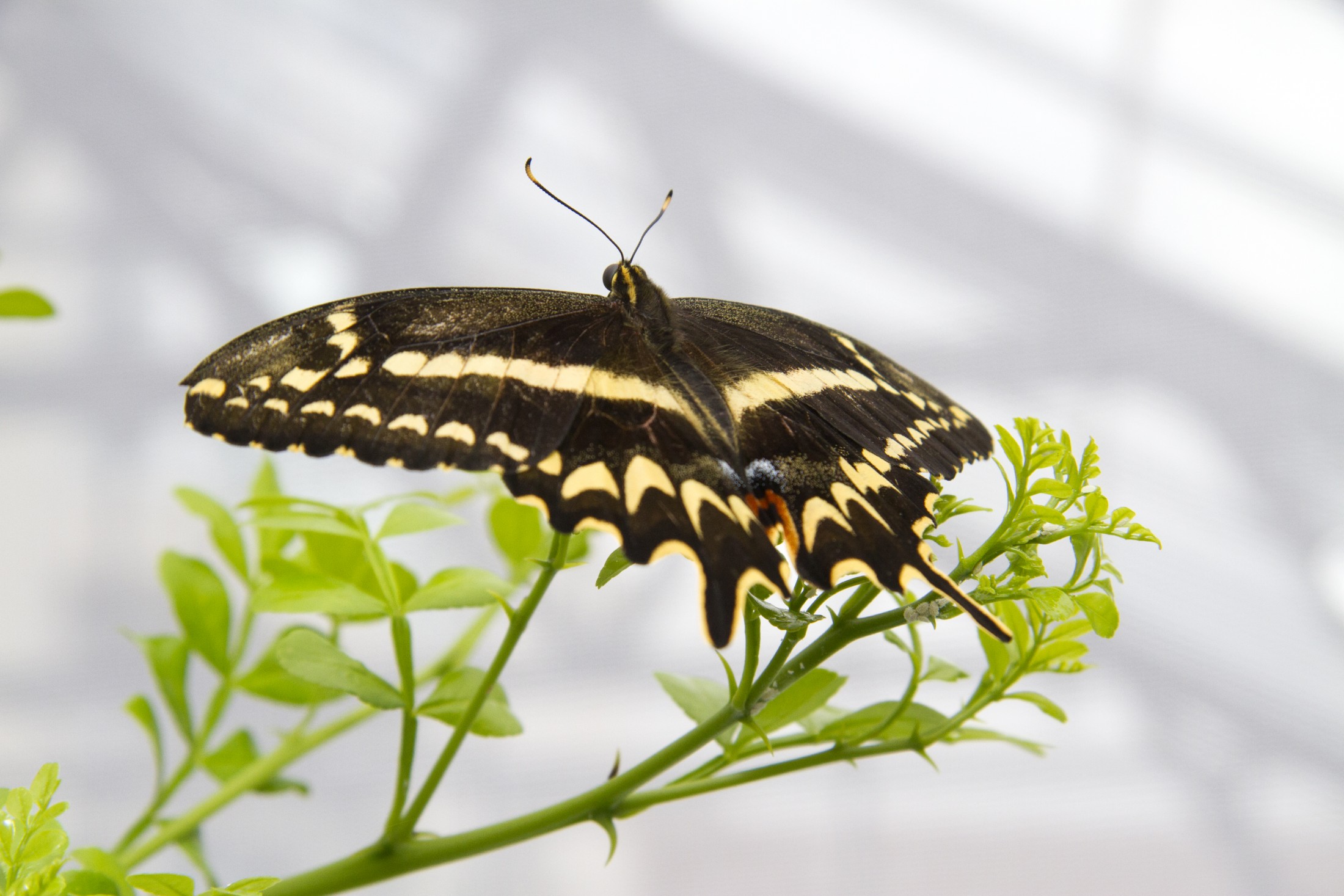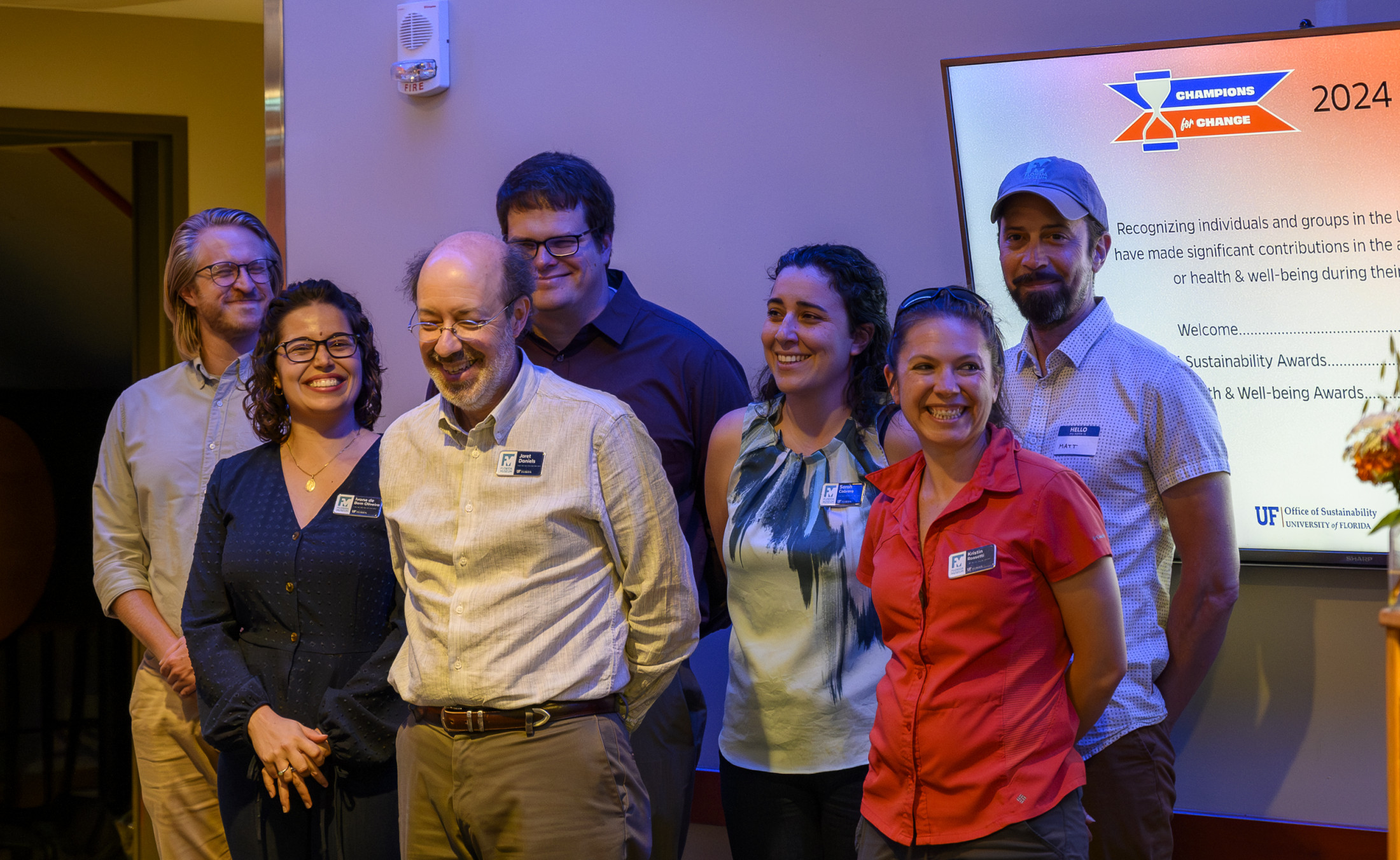The Daniels Lab at the Florida Museum of Natural History has received a Champions for Change award in recognition for their butterfly conservation work. The annual award is given by the University of Florida’s Office of Sustainability and the Healthy Gators Coalition to UF community members who make significant contributions for sustainability or health and wellness.
Many of Florida’s native butterfly species, such as the Schaus’ swallowtails (Heraclides aristodemus ponceanus), have lost much of their historic range as urbanization both shrinks and fragments their habitats. Climate change, overuse of insecticides and increasingly strong hurricanes have also contributed to severe population declines.
Led by Jaret Daniels, a curator at the museum’s McGuire Center for Lepidoptera and Biodiversity, the Daniels lab has been hard at work helping these important pollinators recover. The group was nominated for the award by Florida Museum photographer Kristen Grace.
“Jaret and his students and staff have this relentless passion for what they do, and they don’t give up,” she said. “I wanted to highlight the fact that, quite literally, they brought the Schaus’ swallowtail butterfly back from the brink of extinction.”
Volunteers from the museum and Florida Park Service recorded only four adult Schaus’ swallowtails in 2012, before the Daniels lab launched a project to restore their numbers.

Photo courtesy of Florida Fish and Wildlife Service, CC BY 2.0
The team bred butterflies in captivity before reintroducing them back into the wild. To ensure the species is self-sustaining and viable in the long term, the Daniels Lab works with agency personnel and volunteers to monitor existing populations and help restore habitats. The work provides butterflies with the resources they need to thrive and allows team members to monitor population numbers and trends.
“Conservation is something anybody can do. Even if they might not be able to save an endangered butterfly, people can still make changes to the landscapes where they live that could benefit insects,” Daniels said.
Planting native vegetation, using less insecticide and reducing light pollution are all ways people can make their homes more friendly to wildlife. Daniels calls it a win-win for humans and animals, since many modest changes, like mowing and irrigating less frequently, have the added benefit of saving homeowners money.

Florida Museum Photo by Kristen Grace
“We’re all in this together, and we want to make a difference, so we get excited when other people get excited,” Daniels said.
Insects, as the most abundant member of the animal kingdom, play many essential roles like pollination, nutrient cycling and natural pest control. Daniels has helped foster people’s curiosity and enthusiasm for these organisms through various science education programs. He’s also partnered with First Magnitude Brewing Co. to create beers that educate the public and raise money to help at-risk butterflies. The Daniels lab also helped collect specimens for the museum’s new Incredible Insects exhibit, which offers visitors a chance to go behind the scenes and talk to researchers.
“I’m inspired every day by the people who work in my lab,” Daniels said. “And I really love the fact that the public can see into the labs at the McGuire Center. It’s a wonderful opportunity to showcase the work that we’re doing and also connect to species that really could go extinct at some point in the future. That’s part of our natural heritage in Florida, so to lose them would be a travesty.”
Sources: Jaret Daniels, jdaniels@flmnh.ufl.edu;
Kristen Grace, kgrace@floridamuseum.ufl.edu
Writer: Jiayu Liang, jiayu.liang@floridamuseum.ufl.edu, 352-294-0452